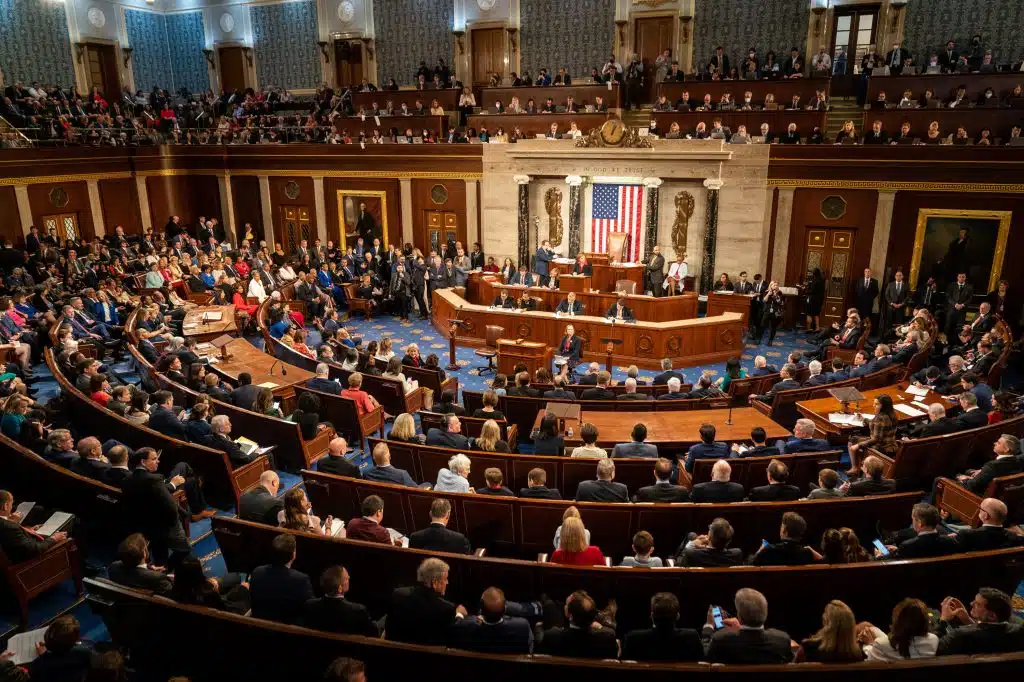The Electronic Payments Coalition’s attack this week against the Credit Card Competition Act calls out retailers Target Corp. and Walmart as greedy mega-corporate stores that stand to profit at the expense of consumers should the legislation pass.
The aggressive tone of the EPC’s “high six-figure” campaign, unleashed this week, signals a new approach for the trade group in its opposition of the CCCA. The new ad shows consumers saying that, while credit card rewards help them save money on everyday purchases, “corporate mega-stores” are in greater need of pocketing the money instead. The campaign then singles out Target Corp. and Walmart as greedy retailers that stand to profit at the expense of consumers should the CCCA become law.
The new tone is a markedly more aggressive approach for opponents of the legislation. While claiming that the CCCA will drain credit card issuers’ ability to fund rewards, prior ads merely spelled out the threat rather than depict consumers talking about how the legislation would jeopardize the future of credit card rewards programs if it became law.

“It has been clear from the start Walmart, Target, and Home Depot are behind the push for Durbin-Marshall,” an EPC spokesperson says by email. “The same large corporate megastores that have been making it harder for Main Street businesses across the country have bankrolled this campaign and donated to the bill’s lead sponsors.” The reference to “Durbin-Marshall” names the two principal sponsors of the CCCA, Sen. Richard Durbin, D-Ill., and Sen. Roger Marshall, R-Kan.
The EPC argues the CCCA would primarily help the largest corporate mega-stores in the country at the expense of small businesses. It says its latest campaign is intended to make consumers aware of who is really driving the legislation.
The campaign is running nationally throughout July across television, radio and digital channels, though the EPC says this is just the start of the effort.
The EPC has also launched a Web site called www.GuardYourCard.com to serve as a resource hub that pulls together the various messages on what the trade group sees as the “harm” the Durbin-Marshall bill would do to consumers, small businesses, and community financial institutions.
“This is a way to bring all of our messages into one place to better highlight the harm this legislation has on consumers, small businesses, community financial institutions, and data protections, as well as define the value businesses receive in return for interchange,” says the EPC spokesperson.
While the the EPC’s campaign against the CCCA has grown more aggressive, the merchant community argues the new message remains untrue. “All the claims about how rewards programs would be harmed by the CCCA have been fact-checked by independent third-parties and shown to be false,” says Doug Kantor, an MPC executive committee member and general counsel for the National Association of Convenience Stores.
Kantor argues the EPC’s latest campaign shows there is no length to which the EPC will not go to spread misinformation about the credit card legislation. “There are small businesses and labor unions that support the legislation because they realize [the system is broken] and reform is needed,” Kantor says. “The banking industry does not speak for small businesses [or merchants]. The strategy the EPC is taking is not effective in our view because people are not as stupid as the banking industry thinks they are.”
For its part, the EPC counters that consumers have sent more than 2 million letters to members of Congress arguing for the preservation of their credit card rewards and adding that the current system works for them.
Originally introduced in Congress two years ago, the CCCA seeks to inject competition into the pricing of credit card transactions by requiring that banks with $100 billion or more in assets enable a second network to route transactions. If one network is Visa, for example, the other one can’t be Mastercard.





